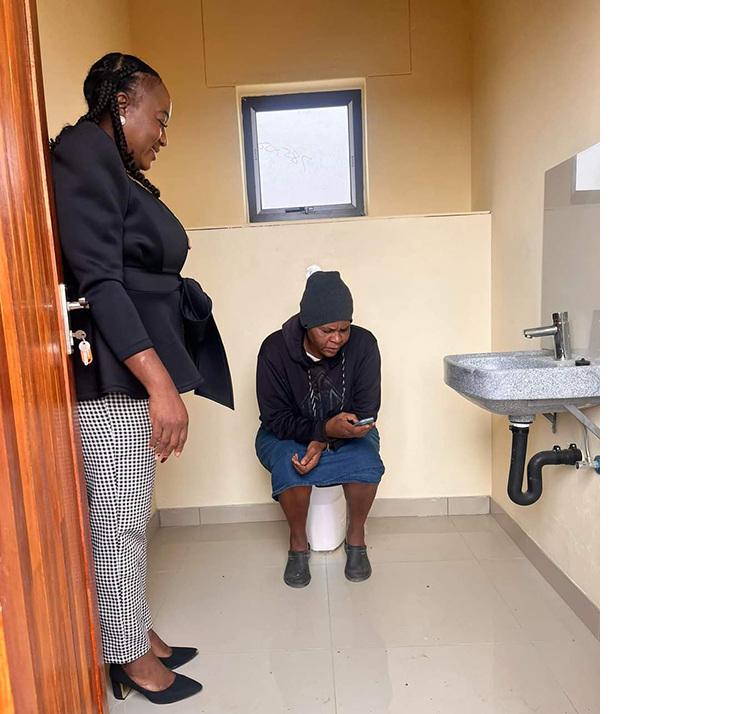Eveline de Klerk
SWAKOPMUND – The Swakopmund municipality on Friday handed over community-led total sanitation stations (CLTS) to the Democratic Resettlement Community (DRC).
The informal settlement was established in 1999 when people flocked to the town for greener pastures. It is home to thousands of residents who can’t afford rental properties or housing through traditional means, as a result increasing the town’s housing backlog to 22 000 units to date.
The residents use communal water taps and toilet facilities, but these are simply not enough to cater to the growing population of DRC.
As a result, the council constructed and handed over six more facilities in six open spaces to complement the existing structures.
Swakopmund mayor Dina Namubes said during the handover that poor sanitation has major negative impacts on health and the environment, and that it has been the council’s mandate to provide proper services to town residents.
“Poor hygienic practices have an acute influence on the transmission of diseases at various stages. This is especially prevalent in contributing conditions such as overcrowding, lack of water and approved sanitation facilities, and a lack of knowledge on the impact of poor hygienic practices in our daily lives and in the activities guiding the livelihoods of communities. The result of these poor personal hygiene practices, therefore, often leads to exposure to diseases and unwanted illnesses,” she stressed.
Namubes said council thus decided to construct additional facilities.
The new facilities consist of male and female toilets, as well as a kiosk which will be operated, maintained and kept clean by a community member selected by the leaders in DRC.
“These sanitation centres are only a temporary solution to the open defecation problem in the DRC, while we wait for the ownership of homes to be completed. Council recently began the process of signing ownership certificates, which will ensure residents of DRC and Wagdaar become homeowners. As a result, they will have access to water and electrical services, allowing them to construct their latrines in the future,” she added.
In the meantime, the mayor said, council will continue to develop and implement strategies to improve sanitation services in the communities, especially in informal settlements.
“This shows a high level of commitment by the council to improving sanitation challenges in the DRC.”
According to the World Health Organisation and UNICEF’s Joint Monitoring Programme (JMP) 2020 data, Namibia ranks sixth for highest rates of open defecation in the world at 47%. Less than half of the country’s 2.5 million citizens use facilities which safely separate waste from human contact, while some 5% use inadequate facilities such as open pits, buckets and hanging latrines.
– edeklek@nepc.com.na



